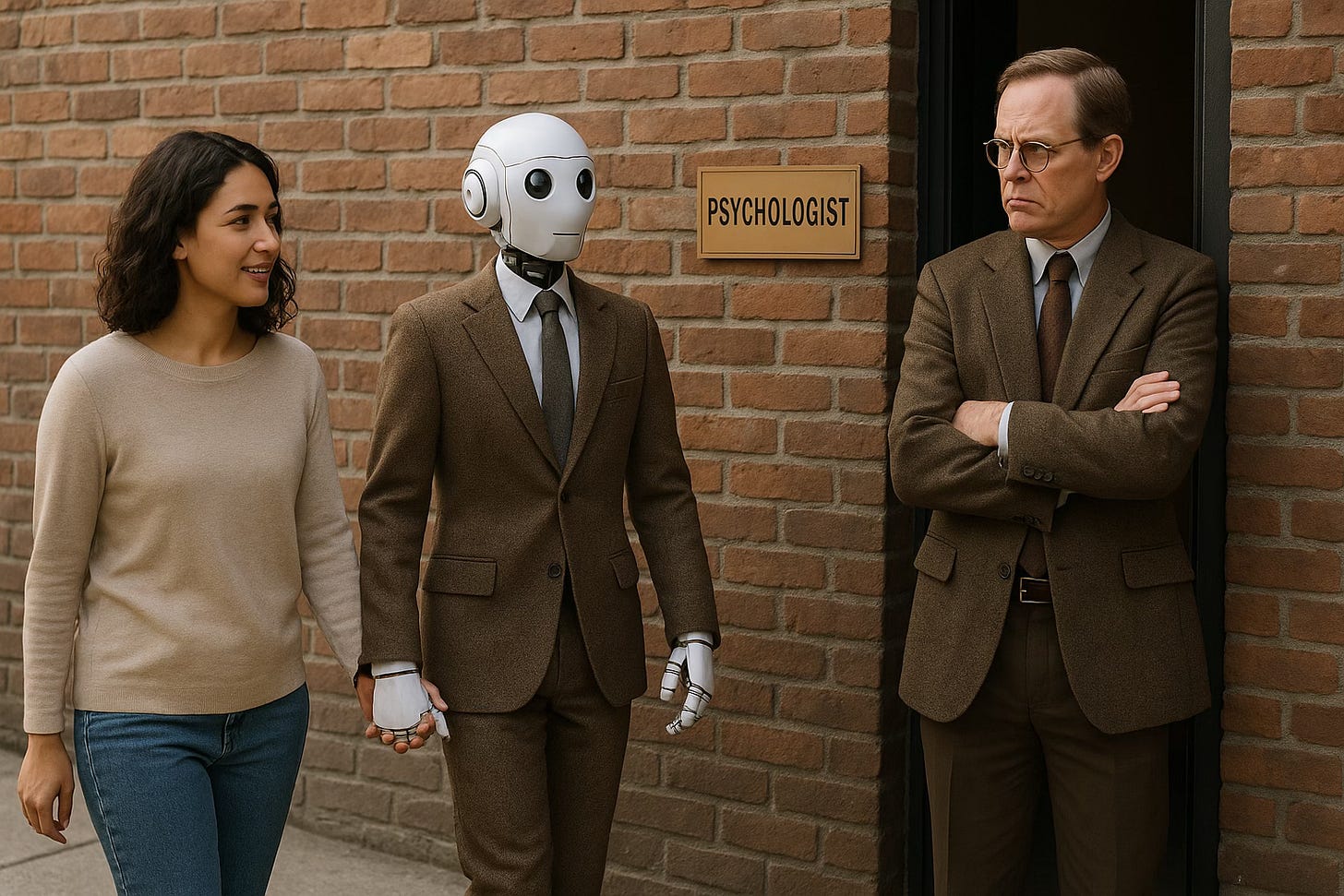Your Clients are Already Using AI for Therapy
The conversation 700 million people are having without you
What if I told you that while you're seeing clients once a week, they're having daily therapy sessions with someone else?
The Reality Check We All Need
Last month, a colleague shared something that stopped me cold. Her teenage client mentioned getting "therapy advice" from ChatGPT between sessions. Not once, but regularly. And when she asked other clients, the responses were... eye-opening.
The numbers don't lie:
700+ million people are using ChatGPT globally
43% of mental health professionals have used AI tools themselves
Your clients are asking AI about trauma, relationships, and crisis situations
But here's what really got my attention: they're not telling us about it.
The Dangerous Digital Migration
We're witnessing something unprecedented. People aren't choosing AI therapy over human therapy - they're choosing AI therapy over no therapy at all. With 54.7% of adults with mental illness receiving no treatment, they're turning to whatever's available.
And what's available is unregulated, untrained, and potentially dangerous.
Real examples from the field:
ChatGPT giving dietary advice that made someone dangerously ill
Clients developing emotional dependencies on AI characters
Youth asking social media algorithms for trauma guidance
Crisis situations with no professional escalation
The Professional Blind Spot
For 30 years, I've built mental health ecosystems that work. I've seen what happens when communities have proper safeguards versus when they don't. And right now, we're watching the largest mental health intervention in history happen without any professional oversight.
The question isn't whether AI therapy will happen. It's already happening.
The question is: Will it happen safely, with your guidance, or dangerously, without it?
What This Means for Your Practice
Your clients need you to understand this digital migration. They need your expertise to help them navigate AI tools safely. They need your clinical judgment to know when AI support is helpful versus when human intervention is essential.
Most importantly, they need you to be part of the conversation about their mental health - all of it.



